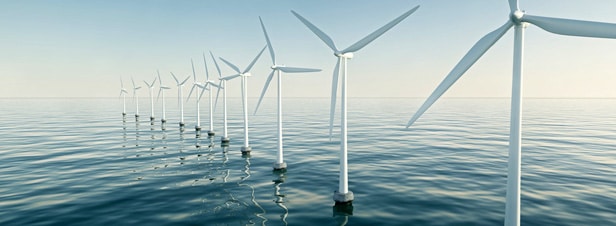A recent survey reveals a surprising divergence in Americans’ perception regarding renewable energy and traditional resources such as oil and gas. While the majority ignore the increased risks of energy shortages in the United States, many do not fully grasp the importance of these fossil fuels in various areas such as food preservation or fertilizer production. Partisan preferences, though predictable, indicate a slight preference for the expansion of greener energy sources, such as solar panels and hydrogen production, reflecting a nation in search of an energy balance.
A recent survey reveals that a large portion of Americans does not understand the risks associated with renewable energy, and still perceives traditional energy sources, such as oil and gas, as essential. About 57% of voters are unaware of the dangers posed by potential energy shortages in the United States, particularly in regions heavily reliant on renewable energy. Moreover, few people are aware of the many uses of fossil fuels in other sectors, such as preserving baked goods or producing medications. The survey also shows that, although a plurality favors green energy, voter opinions vary significantly according to their political affiliations.

Understanding Renewable Energy in the United States
Americans have much to learn about renewable energy and its potential in the national energy mix. A recent survey reveals that 57% of American voters do not know that the United States is facing an increased risk of energy shortages. Despite the growing interest in green energy sources, a large portion of the population remains unaware of the challenges and opportunities that arise. The lack of awareness about the issues of energy transition poses a risk to the country’s ability to effectively navigate toward energy independence.
Underrecognized Use of Oil and Gas
As renewable energy increasingly takes center stage, many Americans ignore the impact of fossil fuels in various sectors. Only 41% of voters know that oil can be used to preserve baked goods, while 46% understand its role in medications like aspirin. These statistics highlight a limited perception of the crucial role of fossil fuels not only in electricity production but also in essential areas of daily life. The medical plastics sector and ammonia for fertilizers, although better known, still reveal gaps in public understanding.
Divergent Energy Preferences Along Political Lines
Energy preferences in the United States are sharply divided along political affiliations. Democrats largely support green energy such as solar and wind power, expressing a willingness to shift away from fossil fuels. Republicans, on the other hand, are more inclined to favor increased production of oil, coal, and natural gas. Meanwhile, independents fall somewhere in between, slightly leaning toward renewable energy. This divide highlights the need for a concerted and inclusive approach to move toward a balanced energy future.
Articles similaires
Thank you!
We will contact you soon.














